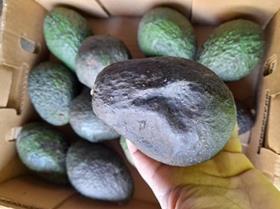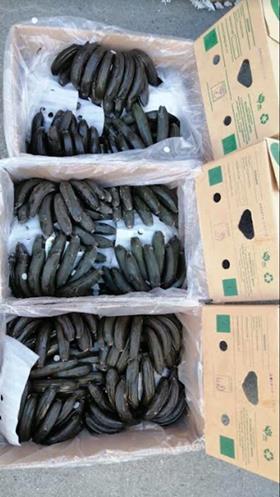Fresh fruit and veg exporters around the world must develop a robust approach to cargo claims if they want to maximise their profit
Shockingly, about 40 per cent of the reefer containers that are used to transport fresh produce are damaged during transit. This alarming statistic translates to staggering losses for exporters. It also underscores a critical need for a robust cargo claims recovery strategy.
And yet, despite clear financial consequences — damaged cargo means lost profits — some exporters remain hesitant to pursue claims. Why? That reluctance often stems from a lack of time. Or a lack of knowledge; it can be hard to fully understand the nuances of cargo claims.
As a result, old myths are perpetuated that in turn lead to thousands in unrecovered losses. The goal of this article is to demystify those common cargo claim myths.

Myth 1: The false security of marine insurance
Cargo insurance is undoubtedly valuable, but over-reliance on it can be a trap. Standard insurance policies exclude reefer malfunction and damage due to excessive delay from their coverage, even thought exporters need it the most.
Secondly, insurers increase premiums following claims settlements, they impose hefty deductibles and unclear settlement terms, and they meticulously scrutinise policies potentially to deny or reduce payouts.
Rather than depend solely on insurance, for lower value cargo such as bananas or grapes, exporters should embrace the possibility of cargo claims recovery direct from liable carriers.

Myth 2: Some claim amounts are too small to pursue
Many exporters dismiss minor damages as not worth the effort of filing a claim with the shipping line. However, these ‘minor’ losses can accumulate, and significantly impact annual revenue.
Addressing every incident not only recovers potentially substantial sums over time but also holds shipping lines accountable, demonstrating a commitment to claim and recover genuine transit losses.

Myth 3: The fear of being blacklisted by shipping lines
Concern that filing a claim might prompt carriers to blacklist you is a common misconception, and is as old as global trade. Shipping lines need your cargo to fill their 24,000-TEU cargo vessels. And they are aware that reefer malfunction, power outages, and container mishandling in transit all occur. Carriers have claim departments for this reason. Do not overthink this one.

Myth 4: ‘Patience is a virtue’ does not apply
It’s crucial to act swiftly. Do not plan to reach a commercial settlement with the carrier ‘in future’, as the chances are your claim will be time-barred when you remember it again.
Some shipping lines may delay their response to claims, in the hope that exporters will forfeit their right to compensation. Show you mean to resolve the case promptly by maintaining regular, meaningful communication. If delays seem intentional or unjust, consult with a cargo claim expert who can help expedite the process and ensure rightful compensation.

Since Covid, there has been a notable shift among fresh produce exporters who increasingly recognise how important it is to pursue cargo claims recoveries.
This proactive approach is not only about seeking justice for damaged cargo, but also about unlocking trapped fund that could be reinvested into businesses and pay growers.



